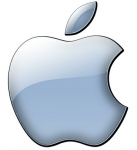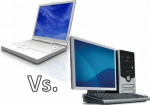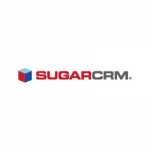
Call Out Charge €20
Computer Ambulance, set-up in 2003 to provide IT services to home and small business users.
IT Services for Invididual / Residential Users
- Complete Hardware Repair Service
- Windows PC and Laptop Repair
- Mac Support and Repair
- iMac Upgrade Service
- MacBook Upgrade Service
- Broadband Solutions and Wireless Networks
- Computer Speed-Up Service
- Remote I.T. support for Mac and Windows
- Computer Security / Virus Removal
- Email Troubleshooting
- iPad/iPhone/iTunes Configuration
- Printer Setup and Configuration
- Cloud Solutions
- Network Set-up and Troubleshooting
- Wireless Networks
- Email Solutions
- Networked Printing Solutions
- Sage and Quickbooks Accounts Setup
Call-Out Charge is €20 within the Greater Dublin area.
Q. What process do you follow when helping people out with their computer problems?
A. Well, you have to listen to the customer. When our technicians go on-site for the first five or ten minutes or however long it takes to get the full picture, they listen. By listening you find out what really frustrates the customer but you will also find out the root cause of the problem much quicker. The customer might make a quick comment about what they were doing with their PC preceding the problem. This often gives you a clue in finding out the cause of the problem. For example, a couple of weeks ago, we had a client whose internet mysteriously slowed down to a crawl. Their computers were working perfectly. Their switches and cabling were working perfectly. The modem was working perfectly. Nobody in the company could explain it. We asked their staff again about the problem. One employee happened to mention casually that 4 weeks previous their credit card terminal was replaced. The connections to this were checked and, sure enough, one of them was plugged into the wrong port. Sometimes, troubleshooting an I.T. problem can be a bit like a detective story, you have to put the pieces of the jig-saw together.
Good listening is also important in finding out how happy a client is with their existing I.T. setup. You have to find out what they like about it and what their pain points are. You have to find out about their current workflow. How do they handle basic stuff like emails, accounts and office documents? What most people forget about I.T. for business is that I.T. is just an enabler to achieve other business tasks. We then ask the client to envision their ideal setup. With all of this information, we can craft an ideal tailored I.T. solution for them.
Q. What happens when people try to fix their own PC or computer network problems?
A.
Sure, loads of people try to fix their own computers and sometimes they are successful. But for a lot of people, when troubleshooting their own computer problems, they often mistake the symptoms of a problem with the actual cause of the problem. For example, last week we had a customer who had an overheating PC, they assumed it was a virus because the PC kept on slowing down every half an hour after turning it on. They had installed several different virus scanners to catch a virus that was not even there. They had mistaken a symptom of an overheating system with a totally different problem. It is like with a lot of things, experience counts for a lot. We can spot problems that an amateur or less experienced technician would miss. This saves the client the frustration of having a technician faffing around trying to solve a problem they misdiagnosed in the first place.
Q. What annoys people most about their computers?
A. People begin to absolutely hate their computer when it slows down. It frustrates them, they feel helpless. People like to be able to turn on their computer in the morning in the same way they turn on a television. They just want it to turn on immediately. They hate waiting for programs to load up and start. This is one of the main reasons behind the success of the iPad, it has quick start-up times.
Lost internet connections are another bugbear for the average computer user. Once their internet connection stops or wireless internet link gets disconnected, people feel as if their umbilical cord to the world has been cut. People usually check all the obvious things first, then they phone their broadband provider and when they cannot help, they call us. A lost internet connection can be caused by anything from a dead switch to corrupt TCP/IP settings.
Q. What are some of the myths about I.T. support?
A. Some people think this job simply involves plugging in a loose wire or restarting a computer if there is a problem. Yes, about every 6 months we get a call like that. But, before anyone will call out a computer support company, they will make sure it is not something simple to fix.
Q. What are some of the changes you have noticed in the last few years?
 A. The shift towards Apple has been huge. There are a number of reasons for this. First of all, Vista arrived on the marketplace and most people had heard horror stories about this operating system, but they still needed to buy a new PC. Apple then became a realistic contender. Also, people got a foretaste of Apple from using their iPod or iPhone. They loved them. They wanted more of the Apple experience and less of what Mr Gates had to offer! A lot of the people who have made the switch have not looked back.
A. The shift towards Apple has been huge. There are a number of reasons for this. First of all, Vista arrived on the marketplace and most people had heard horror stories about this operating system, but they still needed to buy a new PC. Apple then became a realistic contender. Also, people got a foretaste of Apple from using their iPod or iPhone. They loved them. They wanted more of the Apple experience and less of what Mr Gates had to offer! A lot of the people who have made the switch have not looked back.
More and more people are now working from home or on the road. People like architects and solicitors are no longer tied down to an office five days a week. Mobile computing has also become a huge area. More people are accessing the internet on their smartphones. Tablets computers, such as the iPad have become phenomenally popular.
Q. What do you prefer using: a laptop or desktop?
 A. I am an avid desktop user. While laptops are great, they just don?t have same ergonomics as a desktop. With a desktop you are not scrunched over a small screen with a fiddly keyboard. You get a full-size screen, keyboard and can enjoy a better sitting position. While laptops are great for their portability, if you are drafting a long document or doing your company accounts, a desktop can be more comfortable to use.
A. I am an avid desktop user. While laptops are great, they just don?t have same ergonomics as a desktop. With a desktop you are not scrunched over a small screen with a fiddly keyboard. You get a full-size screen, keyboard and can enjoy a better sitting position. While laptops are great for their portability, if you are drafting a long document or doing your company accounts, a desktop can be more comfortable to use.
Q. What is the most common question you get asked?
 A. Without doubt, the most common question we get asked is ?who makes all the viruses?? A week does not go by, without one customer asking this question. People really want to know the motivation why people create viruses, trojans and other bugs that can affect a computer. The reason viruses are created is many and various. Some people do it just for fun or to practice their programming skills. However, over the last couple of years, people have been creating ?scareware? and ?phishing? scams for profit. Scareware are bogus messages that appear on your computer informing your computer is infected or that you are going to lose data. Phishing scams involve fake email messages or web pages you get from somebody purporting to be somebody else like a credit card company. There is even a guy in Korea who has become a multi-millionaire from creating this stuff.
A. Without doubt, the most common question we get asked is ?who makes all the viruses?? A week does not go by, without one customer asking this question. People really want to know the motivation why people create viruses, trojans and other bugs that can affect a computer. The reason viruses are created is many and various. Some people do it just for fun or to practice their programming skills. However, over the last couple of years, people have been creating ?scareware? and ?phishing? scams for profit. Scareware are bogus messages that appear on your computer informing your computer is infected or that you are going to lose data. Phishing scams involve fake email messages or web pages you get from somebody purporting to be somebody else like a credit card company. There is even a guy in Korea who has become a multi-millionaire from creating this stuff.
Q. What are the biggest mistakes that people make when it comes to computers?
 A. At the moment, the biggest mistake some people make is the way they back-up their data. At this stage, everyone has heard that important data must be backed-up. So a lot of people go out and buy themselves an external hard drive and subsequently transfer all their data from their PC or laptop onto the external hard drive. What most people don?t realize is that an external hard drive has a failure rate that is around 30 per cent higher than an internal drive. When you drop an external drive, the tiny drive heads can scrape against the platters destroying the data. It really is sad when this happens. Over the years, I have seen people lose years of photographs, documents and whole databases. External hard drives can be great backup devices, but should come with a warning sticker like what they do with cigarette packaging. That is why you should always have a second backup location, whether that is a server, NAS, online backup or simply another disk which you take off-site.
A. At the moment, the biggest mistake some people make is the way they back-up their data. At this stage, everyone has heard that important data must be backed-up. So a lot of people go out and buy themselves an external hard drive and subsequently transfer all their data from their PC or laptop onto the external hard drive. What most people don?t realize is that an external hard drive has a failure rate that is around 30 per cent higher than an internal drive. When you drop an external drive, the tiny drive heads can scrape against the platters destroying the data. It really is sad when this happens. Over the years, I have seen people lose years of photographs, documents and whole databases. External hard drives can be great backup devices, but should come with a warning sticker like what they do with cigarette packaging. That is why you should always have a second backup location, whether that is a server, NAS, online backup or simply another disk which you take off-site.
Another mistake people make is letting their anti-virus or security software expire. When a computer security package expires, it cannot receive updates. When it is no longer up-dated, it can be the same as having no anti-virus on your computer. When people put it on the long finger, they are leaving their computer vulnerable to attack.
For business owners, probably the worst I.T. mistake they can make is to see I.T. as an expense. For some, spending on money on your computer set-up is a grudge purchase, something that you have to spend money on, but don?t really want to. This is a big mistake. In having a proper I.T. setup, you will reap the benefits. The average small or medium-sized business has never had a better choice of tools to help them run and grow their business more effectively. These range from CRM databases, desktop publishing tools, printing, video conferencing tools, accountancy programs to search engine optimised websites.
Q. Where is the job satisfaction in being an I.T. technician?
 A. Well, you get to meet all walks of life in this job. Over the years I?ve helped everyone from bus drivers, to pilots to heart surgeons with their computer problems. It has been very interesting. But possibly, the greatest source of satisfaction is the actual solving of problems for people. It can be a great sense of satisfaction to go into an office or a home and get a list of problems from the customer and solve them one by one. When you invite the customer to sit down and test their system and everything works perfectly, you can see the delight on their faces. That?s what makes this job worthwhile.
A. Well, you get to meet all walks of life in this job. Over the years I?ve helped everyone from bus drivers, to pilots to heart surgeons with their computer problems. It has been very interesting. But possibly, the greatest source of satisfaction is the actual solving of problems for people. It can be a great sense of satisfaction to go into an office or a home and get a list of problems from the customer and solve them one by one. When you invite the customer to sit down and test their system and everything works perfectly, you can see the delight on their faces. That?s what makes this job worthwhile.
You also get first-hand experience of a wide variety of small businesses selling everything from plastic bags to professional services. Some of these will be doing everything right when it comes to their I.T. Then, there are other businesses where staff are still using USB sticks to transfer information to each other. It can be great showing them better and more efficient ways of doing things with their technology.
Q. What do you make of the Cloud Computing trend?
 A.
A.
The whole cloud computing concept is not new. It has been around a long time but it is only now that the general media are talking about it as the ?next big thing?. Some people are kind of sketchy on the idea of having confidential business or personal data stored somewhere in cyberspace where it might be accessible to prying eyes. Of course, this is always going to be a concern. But, what I would say is this: fifteen years ago, if you walked down O?Connell Street in Dublin and asked random people would they be comfortable if their money could be transferred online or their bank accounts could be checked online, most people would have said ?definitely not?. But now, fifteen years later, most people are comfortable with online banking. I predict the same will happen with Cloud Computing. Most people, over time will grow comfortable with the whole concept and will start using online applications and storage for everything from filing medical records to product patents.
With the current economic climate, a lot of Irish SME?s are beginning to see the benefits of operating in markets outside Ireland. This means getting a good quality search engine optimised website. But, it also means their Irish-based and overseas staff having to collaborate with each other more via the internet. This is where Cloud Computing really comes into play. If an Irish company opens up a branch office in, lets say, the UK or Germany, they can share documents and customer databases much easier than 5 years ago. One of our customers recently opened up a branch office in the U.K. We set them up with a Cloud-based document sharing platform and customer database. This has saved them a lot of time and hassle of continually emailing each other. They can now share documents as easily and securely as if they were stored on their local office network. As a result, they can collaborate better, complete projects and meet deadlines quicker.
Q. What advice would you give to people who want to keep their computers running smoothly and data safe?
 A. First of all, people should only install the necessary software on their PCs which they use regularly. A lot of people download programs willy-nilly and, before long, their registry begins to fill-up and their computer begins to slow down.
A. First of all, people should only install the necessary software on their PCs which they use regularly. A lot of people download programs willy-nilly and, before long, their registry begins to fill-up and their computer begins to slow down.
Computer users should not rely on one external hard drive to store data on. They should have their data stored on at least two or three separate mediums. For example, data should be stored to a second external hard drive, which is taken off-site or backed up to the Cloud. Users should verify that their backup systems are doing the job they supposed to be doing. They should check their backups frequently, should they ever have to rely upon them in an emergency situation. Some I.T. companies just point their clients to a black box in the corner of their client?s office and tell them everything is being backed up to that. We come across cases all the time where, a client thought they had a backup but upon verification, it is months-of-date or there are no backup files at all to be found. The backup systems we set-up are easily verifiable ? the client can easily verify the data themselves for total peace of mind.
Q. What advice would you give to small or medium sized business owners who use I.T. to aid the running of their business?
 A. I suppose the most important aspect of getting I.T. right in a small or medium sized business is getting the basics right first. By the basics, I mean all computers performing smoothly and fast, email accounts that are fully working and all computers and devices on the network are talking to each other. In your average office, like in your average domestic set-up, slow computers frustrate people. Employees want to be able to perform tasks quickly and in a streamlined way. For example, you might have an office where employees are emailing large files back and forth to each other. For scenarios like this, there are much more efficient ways for employees to collaborate with each other than email. So yeah, you must get the basics right first, then you can work on other business tasks which can be automated or streamlined with I.T.
A. I suppose the most important aspect of getting I.T. right in a small or medium sized business is getting the basics right first. By the basics, I mean all computers performing smoothly and fast, email accounts that are fully working and all computers and devices on the network are talking to each other. In your average office, like in your average domestic set-up, slow computers frustrate people. Employees want to be able to perform tasks quickly and in a streamlined way. For example, you might have an office where employees are emailing large files back and forth to each other. For scenarios like this, there are much more efficient ways for employees to collaborate with each other than email. So yeah, you must get the basics right first, then you can work on other business tasks which can be automated or streamlined with I.T.
To give you an example, there are some businesses out there that are still using Excel as a customer database. That might have been fine ten years ago when databases were relatively expensive. But today, with applications like SugarCRM, you can get a easy-to-use sophisticated online or cloud-based database which all your employees can use very cheaply. This gives a company?s employees the ability to check or amend customer details from their computer or smartphone from home or on the road.
There are other simple ways in which I.T. can help a business. One of our customers is a wine merchant. Instead of visiting clients with expensive print catalogues, his sales team now use iPads. This saves the cost of continually updating print catalogues but also saves his workforce having to flick through dog-eared catalogues every time they visit a client. Their website is integrated with their e-commerce platform so ordering can now be done in real-time. This saves them a lot of time on paperwork.
A website is another example of something a business must get right. I am not talking about a website designed by the owner?s nephew who occasionally dabbles with website design. I am talking about getting a professionally designed, Google-optimized website that not only sends out the right image to customers but also gets additional customers. It is hard to believe that there is still a significant amount of business owners out there who have still not taken internet marketing seriously. Whether they are selling industrial pumps, professional or domestic services, business owners who have embraced the internet are now seeing the dividends.
Q. What can you offer that bigger I.T. companies cannot?
A. We care. We are flexible. If your computer fails on a Friday afternoon at 6pm and a customer is genuinely stuck, we will help them out. Most of our customers come from word-of-mouth recommendations. It is the true acid test of any good business. When the transaction is over, will the customer use that business again or recommend it to their friends? We would like to think that with Computer Ambulance, on both counts, most of our customers would say ?yes?. Unfortunately, with some of the bigger I.T. companies you are just a number. If you have an urgent computer problem after office-hours or during the weekend, you will have to wait.
Q. What makes a good computer technician or I.T. solution provider?
 A.
A.
1) They listen to the client. They have the ability to see the wood from the trees. They find out what is important to them. They can prioritise I.T. functions.
2) They follow a good troubleshooting process. Good troubleshooting is being systematic and thorough in your approach, but a good technician can also ?think outside the box? when needed.
3) They must be practical. I.T. solutions must complement a client?s existing workflow or work processes and not interrupt them.
4) Good I.T. solutions fall within budget. Any I.T. solution provider can throw money at a problem. You have to find a solution that is robust and easy to use. Sometimes the best solutions are the simplest.
5) Good people skills ? computers can be intimidating enough for some people. Nobody wants to deal with somebody who treats them like an idiot just because they do not know how to connect their laptop to the wireless network or know how to install updates.
6) Good attention to detail ? When it comes to computers, the devil really is in the details. Sometimes one configuration change or setting can mean the difference between hardware or software working perfectly, intermittently or not at all. Good technicians leave no boxes unchecked, and this usually means a happier and more contented computer user!
Q. How do you keep up-to-date with constant changes in technology?
A. Well, you can blink and you will miss something in the world of I.T! The pace of change is phenomenal. Every week there is a new piece of software or hardware on the market. We try to keep up-to-date by reading technical forums, blogs, I.T. journals, magazines, attending courses and trade events. Meeting your peers or competitors also helps ? finding out if they are doing something better than you.
Q. What would surprise people most about your job?
A. We get a lot of people who actually work in I.T. themselves needing help. If somebody works in the I.T. department of a large organisation, they will usually be dealing with the same tasks and same computer systems day-in and day-out. Working as a computer technician in the residential and small business market, you are exposed to different I.T. setups, computer systems and configurations on a daily basis. The breath and depth of your experience becomes much greater, than any experience you will get in an I.T. department of a large company.
Is your MacBook laptop or iMac running slow? Fix a slow iMac in Dublin
